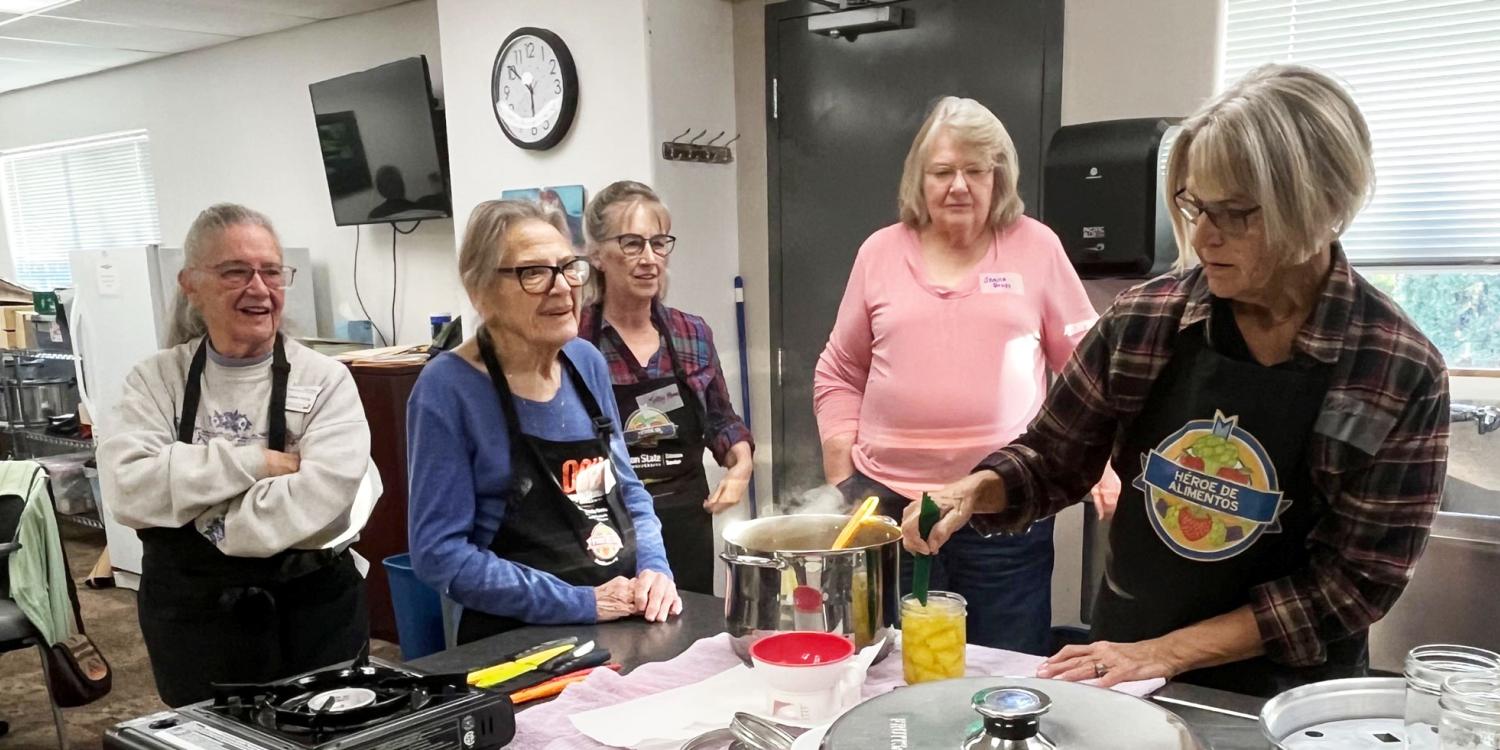
Interest in home food preservation has surged since the beginning of the COVID-19 pandemic and Google search trends indicate that Oregonians’ interest in home canning ranks ninth nationally. As an increasing number of Oregonians are seeking information about safe methods for preserving the harvest and securing year-round access to seasonal foods, Oregon State University Extension Service offices across the state report that they can’t respond to all of the requests for canning information that they receive.
For more than 40 years, OSU Extension has been training and certifying Master Food Preserver volunteers who promote safe methods of food preservation in home kitchens. In recent years, however, the number of Master Food Preservers has declined and outreach efforts have shrunk even while interest in home food preservation has increased.
In response, a collaborative group of OSU Extension faculty and staff working in 10 Western Oregon counties came together in 2023 with the goal of revitalizing and expanding the Master Food Preserver program in the region. Goals for the cohort included:
- Teach community members easy and safe methods of food preservation.
- Increase the resilience of the local food system by supporting households in preserving seasonally abundant foods.
- Respond to consumer food safety questions.
The 2023 Master Food Preserver certification course was offered in a hybrid format to improve accessibility of the course. Lectures and written assignments were completed online, and hands-on practice sessions were offered weekly in eight different locations. This innovation in content delivery provided more flexibility for the trainees and instructors alike, and it attracted a more diverse pool of new volunteers to the program.
Over the course of seven weeks in October and November, trainees in Western Oregon participated in the course to become local experts in home food preservation, ready to answer questions from friends and neighbors in their communities. At in-person sessions, trainees learned essential techniques for safely canning fruits, vegetables, seafood and meats, as well as how to freeze, pickle, ferment, smoke or dry a wide variety of foods.
Trainees also gained practice in answering real-world food safety questions from the public, and they completed a final presentation and written exam to demonstrate their mastery of the subject.
The development of virtual training components allowed participants to engage with the material at times best suited for their schedules, and the decision to offer some labs at evening or weekend times allowed more working individuals to participate.
The median age of the training group was 48 years old, with individuals from 24 to 83 years old participating. This year’s cohort also introduced more racial diversity into the Master Food Preserver community, with Black and Native individuals represented in numbers proportionally greater than in the state’s population overall. Closed captions of the virtual components enabled participants with auditory disabilities to fully participate.
Due in part to the more flexible format of this hybrid course offering, the 2023 Master Food Preserver course also attracted a diverse group of volunteers. They included younger, working individuals and a strong representation of different racial and ethnic backgrounds. The diversity of this new class will enable Extension better to reach historically underserved communities in both geographically remote areas and diverse cultural communities.
As a result of this initiative, the hybrid course attracted 66 new trainees to the Master Food Preserver program, representing a 35% increase in the total number of Master Food Preservers statewide.
According to post-course surveys, participants reported a 30% increase in their knowledge about food preservation, with the greatest knowledge gains relating to fermentation, steam canning, dehydrating and pressure canning. Additionally, 22% of respondents reported wanting to sell preserved foods directly to consumers, which can ultimately result in more local foods in the marketplace, additional income for participants, and expanded opportunities for consumers to purchase locally made goods and support the local economy.
Extension plans to offer the hybrid course again in spring 2025.